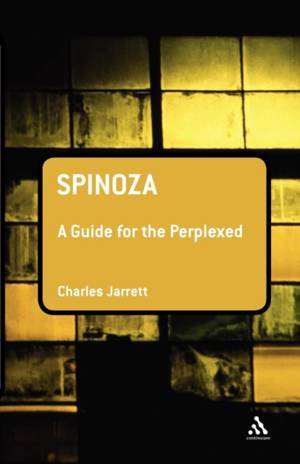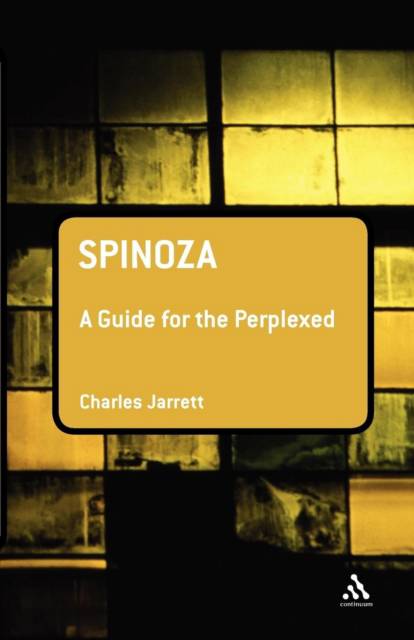
Bedankt voor het vertrouwen het afgelopen jaar! Om jou te bedanken bieden we GRATIS verzending (in België) aan op alles gedurende de hele maand januari.
- Afhalen na 1 uur in een winkel met voorraad
- In januari gratis thuislevering in België
- Ruim aanbod met 7 miljoen producten
Bedankt voor het vertrouwen het afgelopen jaar! Om jou te bedanken bieden we GRATIS verzending (in België) aan op alles gedurende de hele maand januari.
- Afhalen na 1 uur in een winkel met voorraad
- In januari gratis thuislevering in België
- Ruim aanbod met 7 miljoen producten
Zoeken
€ 55,95
+ 111 punten
Omschrijving
Continuum's Guides for the Perplexed are clear, concise and accessible introductions to thinkers, writers and subjects that students and readers can find especially challenging. Concentrating specifically on what it is that makes the subject difficult to fathom, these books explain and explore key themes and ideas, guiding the reader towards a thorough understanding of demanding material. Benedict de Spinoza is a major philosopher of enduring influence and importance, whose work is encountered by all serious students of Western philosophy; his Ethics is one of the seminal works of moral, religious and political thought. Nevertheless, Spinoza is a considerable challenge for the modern student; his language, rooted in the vocabulary of late Medieval scholasticism is frequently opaque, while the esoteric themes explored in his work often require elucidation. Spinoza: A Guide for the Perplexed provides that elucidation, offering a thorough account and analysis of Spinoza's key works and overall philosophical project. The text equips the reader with the necessary means to draw full and clear understanding from Spinoza's often inaccessible language and complex philosophical system and method. His Ethics and political treatises are covered in detail; Spinoza's 'geometrical' approach to his subject is opened up, and his obscure terminology fully explained. The book concludes with a valuable assessment of Spinoza's enduring influence and his relevance for contemporary philosophical debates and concerns. It is an excellent support resource for anyone trying to get to grips with this challenging and important philosopher.
Specificaties
Betrokkenen
- Auteur(s):
- Uitgeverij:
Inhoud
- Aantal bladzijden:
- 240
- Taal:
- Engels
- Reeks:
Eigenschappen
- Productcode (EAN):
- 9780826485960
- Verschijningsdatum:
- 11/08/2007
- Uitvoering:
- Paperback
- Formaat:
- Trade paperback (VS)
- Afmetingen:
- 141 mm x 217 mm
- Gewicht:
- 308 g

Alleen bij Standaard Boekhandel
+ 111 punten op je klantenkaart van Standaard Boekhandel
Beoordelingen
We publiceren alleen reviews die voldoen aan de voorwaarden voor reviews. Bekijk onze voorwaarden voor reviews.









